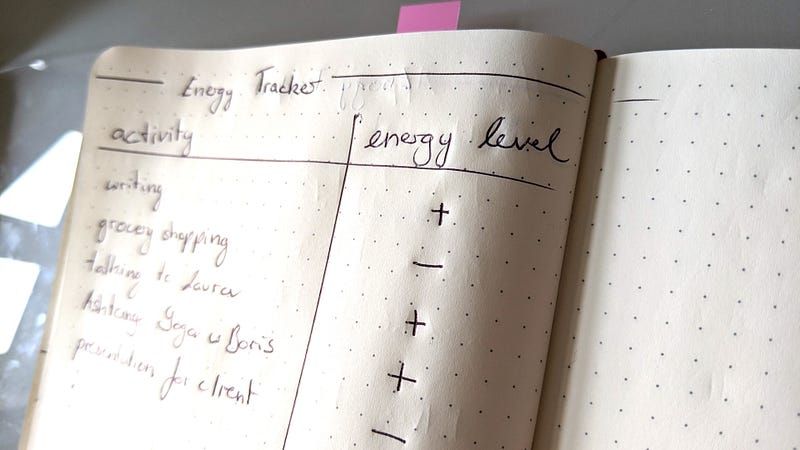Move closer to your authentic self.

Knowing yourself doesn’t happen in an instant.
It happens through continuous inner work; by questioning yourself, and discovering single puzzle pieces to then, finally, putting the single pieces together to form a complete picture.
So, if you want to understand yourself, your values, your energy levels, or even your purpose on this planet, the question is not which books to read or which mentors to find. Instead, the question is:
“Which answers do I need to find that will allow me to discover the puzzle pieces that eventually, help me understand myself?”
1. What makes a ‘successful’ life for you? Why?
Most people never question their definition of success. They inherited their parents’ ideas, added a pinch of opinion when they finished school, and leave the picture untouched for the rest of eternity.
It takes courage to answer this question instead of blindly following society’s norms. More often than not, your answer sheds light on what psychologists call cognitive dissonance, meaning your actions contradict your beliefs.
You might have a specific success idea in mind but act in a way that pulls you away. Yet, once you take an honest account of your understanding of a successful life, you can adjust your actions.
Plus, according to this study, the definition of success varies over one’s lifespan. At 12, we want to be famous. At 17, own a fancy status symbol and five years later, accumulate all the money we can. In our mid-20s, success might equal a healthy lifestyle, and, after our phase of self-centeredness, we will equalize success with helping others.
And that’s what makes this question so powerful. By finding your answer in your current life phase, you’ll move one step closer to understanding yourself.
“Whenever you find yourself on the side of the majority, it is time to pause and reflect.”
— Mark Twain
2. How would you spend your time if you didn’t have to think about money?
This is a tough one. Earning money is the primary objective in our modern working world. By searching your answer to this question, you’ll explore spheres beyond your everyday orbit.
You won’t find your answer the first time you ask it.
But by revisiting this question, you’ll soon move past short-term vacation fluff. No, you don’t want to spend your life traveling through the Amazonas, joining Ayahuasca ceremonies while learning how to play the guitar.
That’s fine for a few weeks, or even months.
But you want to dig deeper.
What then? What comes after taking the vacation and seeing some new cultures? How would you spend your time if money wasn’t an issue? What would you be focusing on?
By thinking of answering this question, you’ll know more about your purpose than many people on this planet.
3. What gives you energy?
While the other questions were about deep thinking, this one is about observing. You want to take a closer look at your activities, environment, interactions, and objects.
The best way to find an accurate answer is a personal energy journal. For the next five days or so, make a list in your notebook (or whatever you’re using for your to-do list) and fill a simple, two-column table with the headlines activity and energy level.

Take an honest account of whether your activity elevated (+) or reduced ( — ) your energy level. Your answers to how you spend your days are the best insight, whether you’re engaging in the right kind of activities.
“For the past 33 years, I have looked in the mirror every morning and asked myself: ‘If today were the last day of my life, would I want to do what I am about to do today?’ And whenever the answer has been ‘No’ for too many days in a row, I know I need to change something.”
— Steve Jobs
4. Around which people do you feel like yourself?
Robert Waldinger, a psychiatrist and former Harvard professor, analyzed the longest study on human happiness and proved relationships to be the most important part of our lives.
In the 1930s, researchers invited 19-year-old sophomores from Harvard and teenagers from the poorest neighborhoods of Boston to take part. For over 75 years, scientists did interviews, medical tests, and checked up on their subjects every two years to see how they were doing.
While many of us think fame, fortune, and hard work will bring us happiness, Robert proves us wrong. He highlights ingredients for our health and well-being:
- having social connections is better for our health and well being
- having higher-quality close connections is more important for our well-being than the number of connections
- having good relationships is not only good for our bodies but also for our brains
So, knowing around which people you feel like yourself is by far the most critical step in finding the puzzles of your life.
By getting your relationships right, by surrounding yourself with people you genuinely care about, you’ll eventually move closer to your true self.